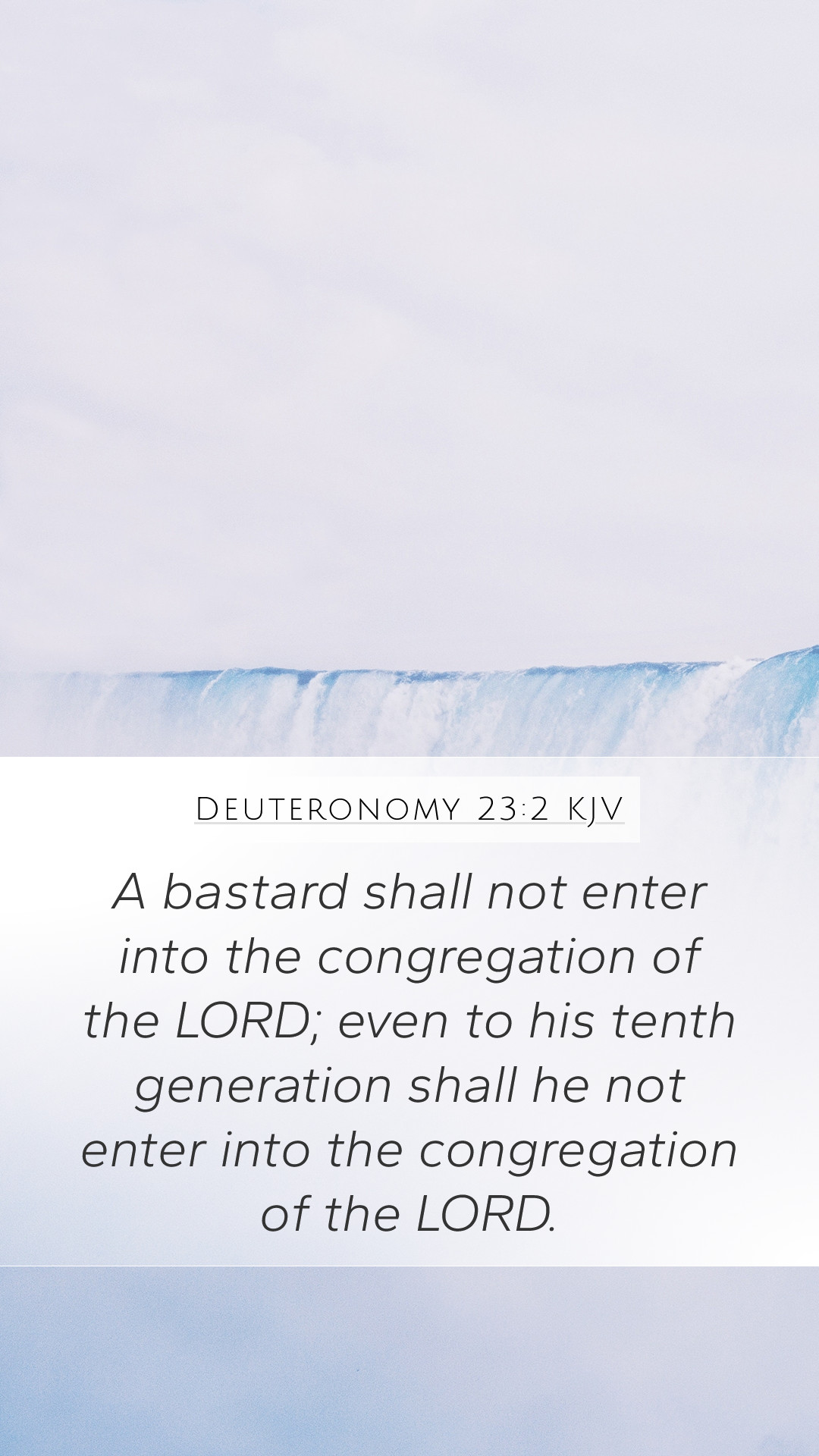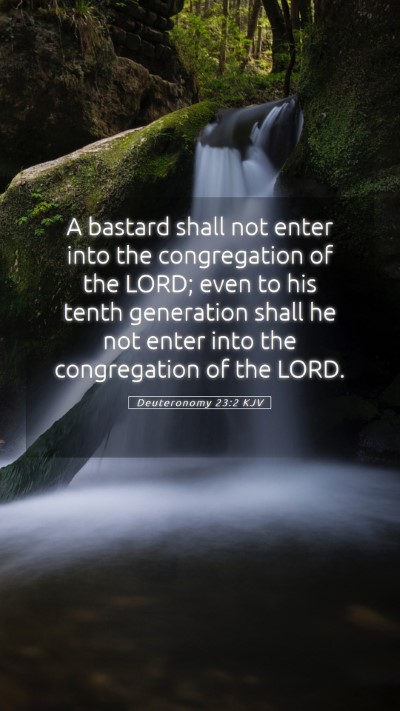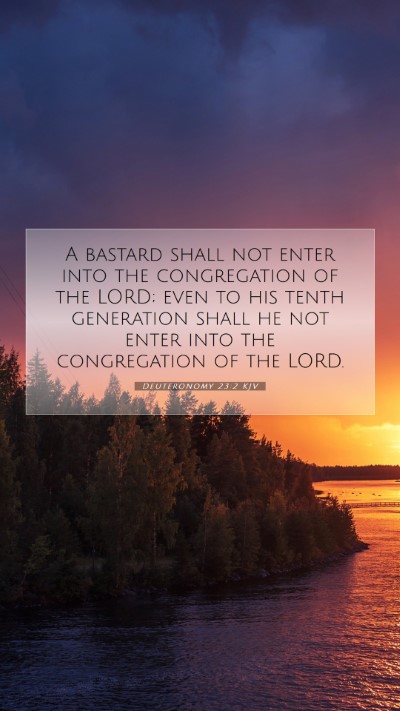Understanding Deuteronomy 23:2
Verse Reference: Deuteronomy 23:2 - "A bastard shall not enter into the congregation of the LORD; even to his tenth generation shall he not enter into the congregation of the LORD."
Summary of Biblical Exegesis
This verse addresses the issue of legitimacy in Israelite society, particularly regarding those of mixed parentage. The term "bastard" refers here to a child born out of wedlock, indicating a deeper concern for the sanctity and structure of the community worshiping God. The verse emphasizes the importance of lineage and purity while setting a clear boundary for those considered outside of the 'congregation'.
Insights from Public Domain Commentaries
-
Matthew Henry:
Henry highlights that the term “bastard” indicates not just illegitimacy but signifies broader implications of being outside the covenant community of Israel. He emphasizes the importance of maintaining a holy and distinct community dedicated to God, reflecting on how such purity is crucial for the spiritual health of the community.
-
Albert Barnes:
Barnes elaborates on the cultural context of the ancient Israelites, noting that the prohibition served to preserve the integrity of Israel’s worship. He points out that while these children are not to be ostracized, they faced limitations in their civil rights within the nation, underscoring the societal norms of the time that impacted spiritual standing and social acceptance.
-
Adam Clarke:
Clarke adds a historical perspective, arguing that this law was intended to prevent any corruption within the sacred community. He suggests that this prohibition was understood to be a deterrent against sin, illustrating that such social dynamics played a role in maintaining the moral fabric of society. He also points out the symbolic significance of lineage and purity in worship and community identity.
Theological Implications
From a theological perspective, this verse raises essential questions about inclusion, sin, and redemption. While the verse reflects societal norms of its time, it also invites readers to reflect on the nature of God’s grace and mercy. The limitations placed on those born out of wedlock challenge the notion of God's acceptance and how it transcends human-defined boundaries. In exploring the Bible verse meanings, one can ponder the transformative message of Jesus Christ, who came to break down barriers and extend grace to all.
Application and Reflection
For modern readers, Deuteronomy 23:2 challenges us to consider how we view others in our churches and communities. In understanding Scripture, the importance of compassion and inclusivity can be emphasized over rigid adherence to cultural norms. This reflects a critical aspect of Christian teaching: the call to love, accept, and nurture all individuals, regardless of their background.
Cross References
- Exodus 20:14 - "Thou shalt not commit adultery."
- Leviticus 21:17-21 - Instructions regarding the physical qualifications for priests.
- Matthew 1:3, 5 - Genealogy of Jesus, showcasing examples of unexpected lineage.
- Galatians 3:28 - "There is neither Jew nor Greek..." - The breaking down of barriers in Christ.
- James 2:1-4 - Warning against favoritism within the church community.
Conclusion
In conclusion, understanding Deuteronomy 23:2 requires careful consideration of its historical, cultural, and theological context. The insights gleaned from various commentaries provide depth to our Bible study insights, indicating a complex interplay of law, community, and grace. As we engage in discussions about this verse, whether in Bible study groups, online learning platforms or personal reflection, we are reminded that every individual is valued in the eyes of God, highlighting a theme of inclusion that resonates throughout Scripture.


